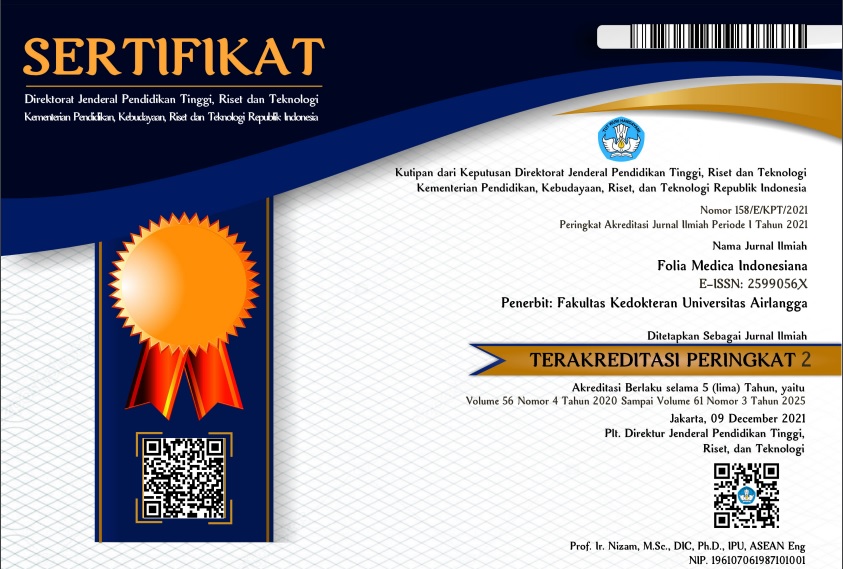ORCID ID
Arifa Mustika: https://orcid.org/0000-0001-6461-5782; Citrawati Dyah Kencono Wungu: https://orcid.org/0000-0001-5180-957X
Abstract
Rheumatoid arthritis is a chronic inflammatory disease that symmetrically damages the synovial membrane, affecting approximately 13% of the global population. Systemic complications and substantial declines in quality of life may result from untreated rheumatoid arthritis. This study investigated the safety and efficacy of moxibustion and ozoralizumab in reducing disease activity scores in rheumatoid arthritis patients. Between July 2023 and February 2025, we conducted a thorough search on four online databases (PubMed, Cochrane, Scopus, and ProQuest) using keywords, reference searches, and other methods following the Preferred Reporting Items for Systematic Reviews and Meta-Analyses (PRISMA) guidelines. The obtained randomized controlled trials (RCTs) were assessed using the Cochrane Risk of Bias 2 (ROB2) tool. MetaInsight version 5.2.1 was utilized to perform the indirect network meta-analysis, using mean difference (MD) as the summary statistics. The measurement of the Disease Activity Score 28 (DAS28) indicated that ozoralizumab had a more significant effect on rheumatoid arthritis compared to placebo (MD=-1.88, 95% CI=-2.24-(-1.52)) and moxibustion (MD=-0.69, 95% CI=-1.07-0.31). Ozoralizumab demonstrated mild, moderate, and severe side effects, whereas moxibustion displayed modest side effects in comparison to placebo. In summary, both ozoralizumab and moxibustion reduced DAS28 in patients with rheumatoid arthritis, with ozoralizumab proving to be the more effective treatment. However, the adverse effects of ozoralizumab were more varied than those of moxibustion.
Keywords
Ozoralizumab, Moxibustion, Rheumatoid Arthritis, DAS28, Medicine
First Page
358
Last Page
371
DOI
10.20473/fmi.v60i4.64949
Publication Date
11-12-2024
Recommended Citation
Susanti, Luthfiana Rofhani; Mustika, Arifa; Rahmawati, Lita Diah; and Kencono Wungu, Citrawati Dyah.
2024
Efficacy and Safety of Ozoralizumab versus Moxibustion for Rheumatoid Arthritis.
Folia Medica Indonesiana. 60,
4 (Jan. 2025 ), 358-371.
Available at: https://doi.org/10.20473/fmi.v60i4.64949






